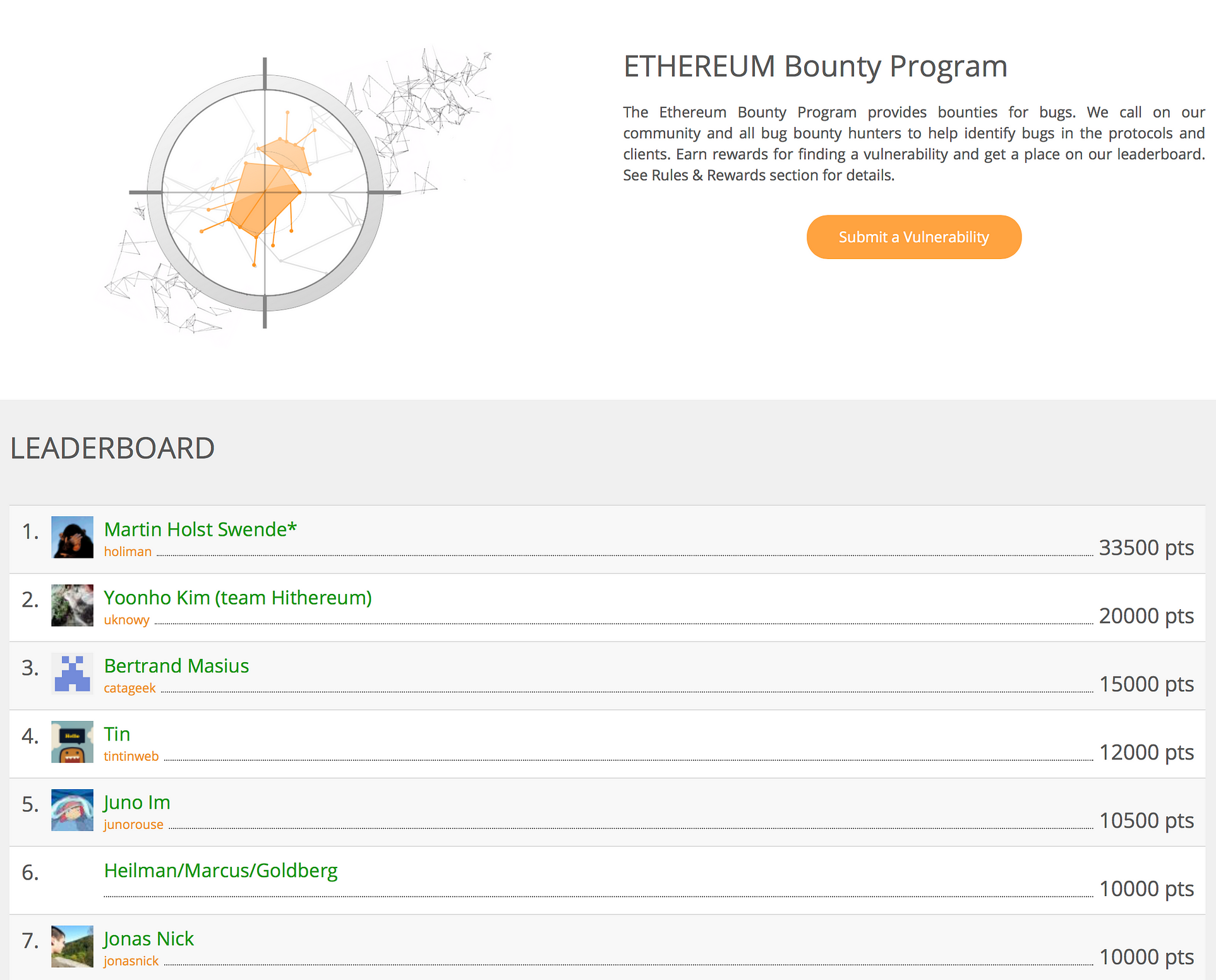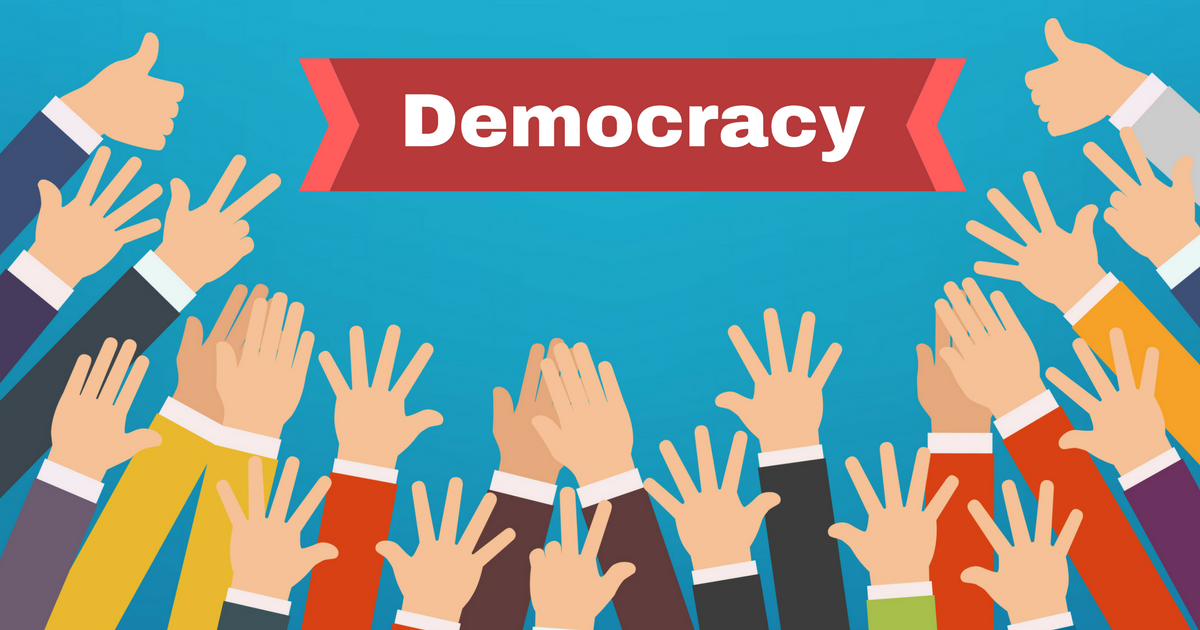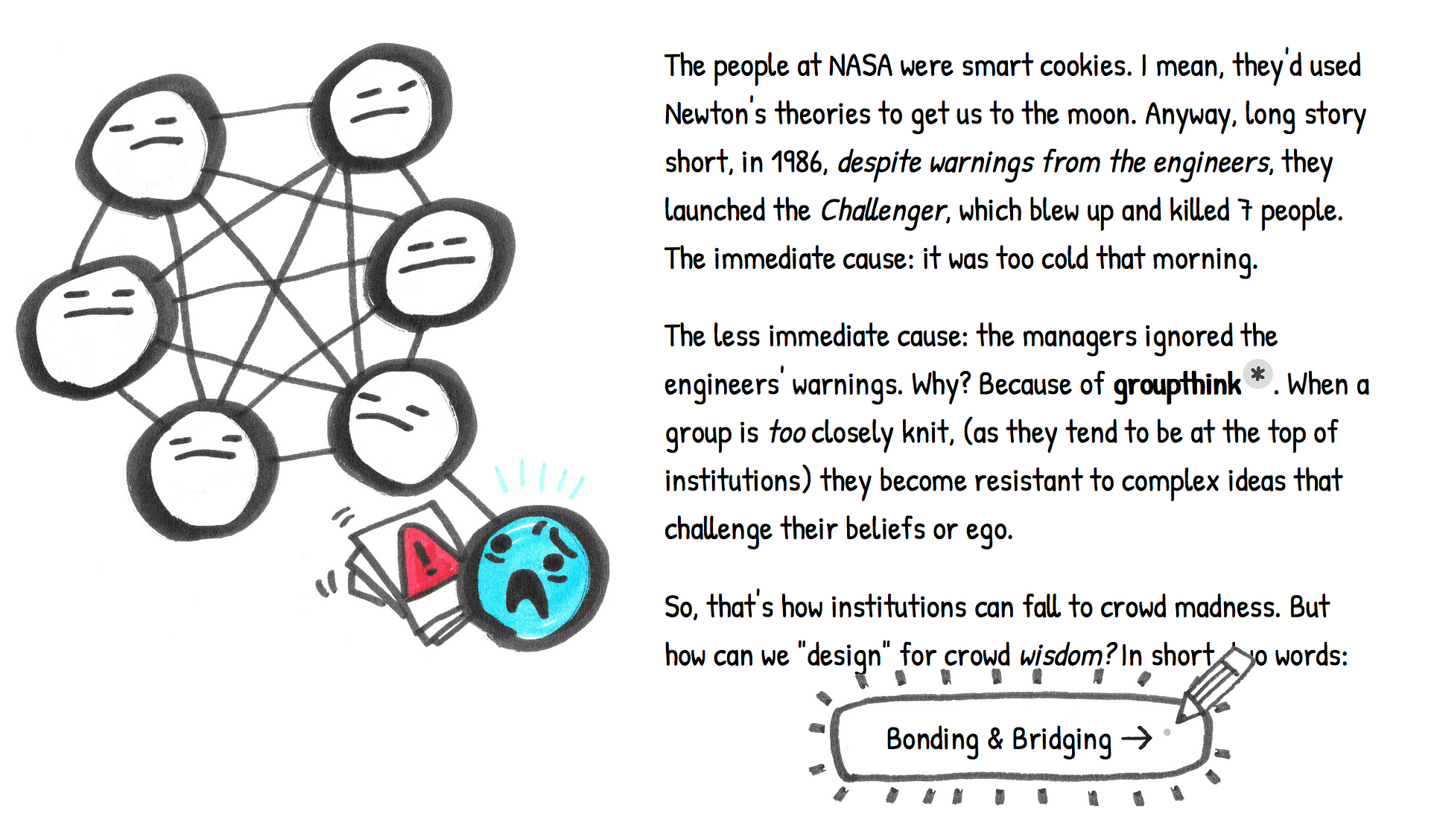Blockchain Insurance — Founders Bounty
The Challenge with Smart Contracts:
Security Challenge 1: “Who would enforce a decentralised smart contract? The enforcement would already cause it to be centralised.”
Security Challenge 2: “If the founders run off with your ETH after doing a scam ICO, who will catch them?”
Smart Contracts as a Solution:
- Would it be possible to create a decentralised “community police force”? Let the community police itself.
- Use smart-contracts to place a bounty on bad actors. Anyone who catches them earns the bounty!
- Alternatively, smart-contracts could make it very challenging for the perpetrators to spend their funds. This “embargo” could be enforced through community-vote.
- For example, we as the community, vote to mark this wallet address as non-spendable, as we believe the funds to have been stolen.
Method of Implementation:
- Everyone who participates in a certain ICO, can contribute to a bounty-fund for that ICO, as a form of ICO-insurance.
- Contribution can be on a regular basis, or can be till a fixed target of bounty-reserves are collected. Funds are stored in a smart-contract escrow.
- If you have contributed to the bounty-fund, when you catch a bad actor, you can claim bounty from the bounty-fund.
- Everyone who has also contributed to the bounty-fund, must vote to disburse the funds to you, when you catch a bad actor.
Goals of the Bounty Fund:
- The community as a whole can penalise bad actors in the community, by rewarding people for discovering their deceptions.
- In other words, we can reward both “bug hunters” and “con-men hunters”. Code + People policing.
- Conversely, the bounty-fund can be used to reward people who do good work as well! We can also choose to reward positive behaviour.
- Align the economic incentives of all participants, to do good, rather than evil. “Crime does not pay”.

System Assumptions:
- Assumes that there are more good people in the community than bad ones. In other words: “People are generally do-gooders”.
- Assumes therefore that the crowd is fair, and is not vulnerable to “false news” (information assymetry or media manipulation), mob-madness (lynching or hate-speech), and collusion “group of people acting selfishly in their own favour”.
- We are able to identify everyone in the system, and one-person = one-vote. Voting by wallet-stake is likely going to be unsatisfactory.
Possible Negatives of Such a System:
- System appears to mimic characteristics of what is called a “direct democracy”. A form of direct governance.
- Most democratic systems today, are a form of “representative democracy”, and there are good reasons for that.
- “Direct democracy” suffers from a trilemma, which I will detail below.
Direct Democracy Trilemma — Source: Wikipedia:

- Participation — There must be widespread participation in the decision making process by the people affected. Without participation, there can be no…
- Deliberation — a rational discussion where all major points of view are weighted according to evidence by all the people affected…
- Equality — all members of the population on whose behalf decisions are taken have an equal chance of having their views taken into account. This is challenging in the blockchain, because voting stake is commonly representated by wallet-weight! (Whales have the largest vote).
Further Research For Consideration:
- Should cover the realm of Electronic Democracy.
- Cardano (ADA), which is funded by IOHK, also has several proposals regarding on-chain governance, although it’s too early to tell which models will succeed.
- Research has shown that crowds may not be always fair. This is called the “madness of crowds” and is also known as “mob-mentality”.

- Crowds may often be subject to “information assymetry” in the online-world, also known as “fake-news” e.g. Trump + Cambridge Analytica.
- In the real-world, crowds may be influenced by pheremones and other chemical precursors emitted when humans in a group are stressed.
Could We Learn More From “Network Theory”?



NCase has some really good network-simulators, see “Wisdom and/or Madness of Crowds” and the “Evolution of Trust” to learn more.
https://bitcointalk.org/index.php?action=profile;u=1582803;sa=forumProfile









Komentar
Posting Komentar